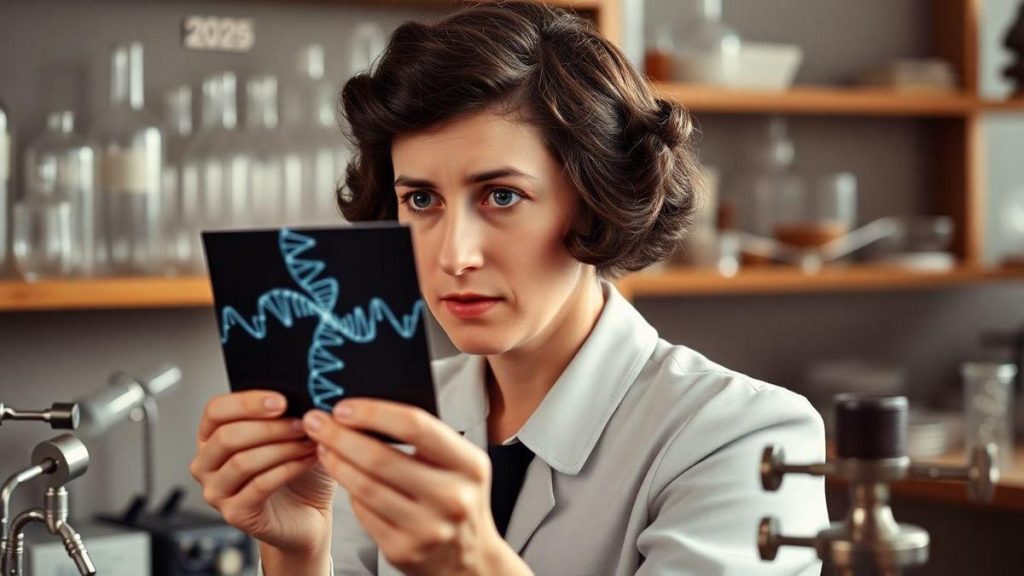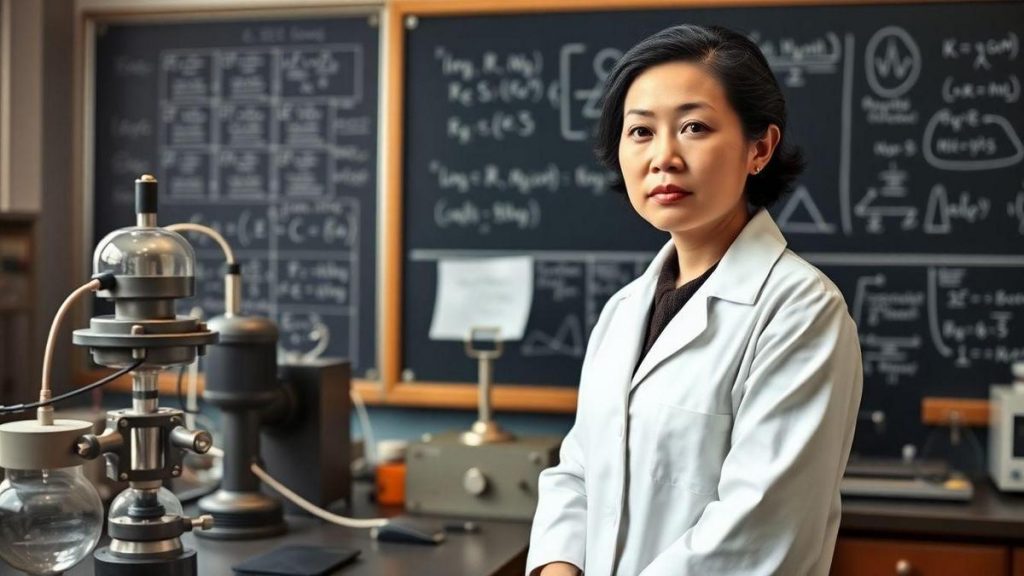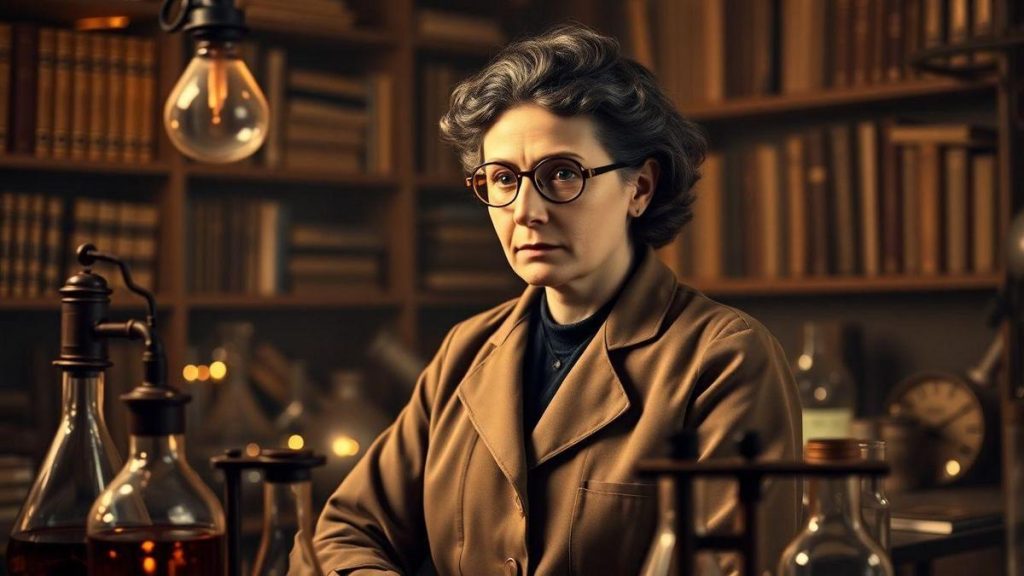The discovery of penicillin by Alexander Fleming in 1928 is one of the most remarkable stories in science, marked by serendipity and brilliance. While working in his laboratory at St. Mary’s Hospital in London, Fleming accidentally observed that a fungus, Penicillium notatum, destroyed the surrounding bacteria. This fortunate event would lead to the creation of the first antibiotic, saving millions of lives over time.
Although his discovery was accidental, Fleming’s work was the result of years of observation and research on bacterial properties and their effects. The impact of his discovery was profound, not only in the treatment of bacterial infections but also in the advancement of modern medicine. Penicillin opened the doors to a new era in the fight against infectious diseases and shaped medicine as we know it today.
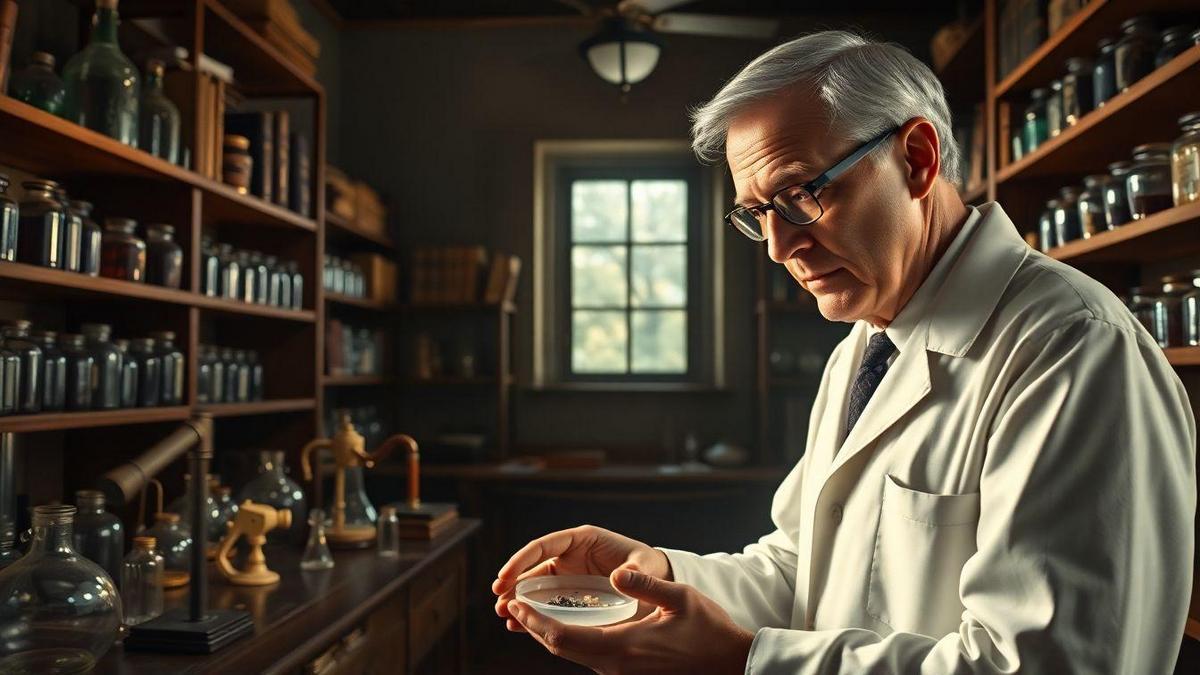
The Fundamental Role of Scientific Curiosity
Fleming’s story is a clear example of how scientific curiosity can lead to unexpected discoveries. His initial research on bacteria and their interactions with various substances laid the foundation for the discovery of penicillin. Fleming’s work illustrates how patience and focus on detailed observations can lead to significant advancements.
Furthermore, the serendipity of his discovery shows the importance of maintaining an open and observant mind. Even in a highly competitive and technical field, curiosity and a willingness to explore new possibilities can bring revolutionary solutions. This scientific mindset, centered on continuous exploration, is essential for the progress of medicine.
Penicillin: The Revolution in Infection Treatment
The introduction of penicillin was a milestone in medicine, as it provided an effective solution for the treatment of a wide range of bacterial infections. Before its discovery, many infectious diseases led to fatal complications. With penicillin, medicine gained a powerful tool to save lives and treat previously incurable conditions.
Penicillin worked by destroying the bacterial cell walls, a mechanism that resulted in the death of bacterial cells without affecting human cells. This advancement made penicillin a highly effective and, for the time it was discovered, revolutionary antibiotic.
The Influence of Penicillin on Modern Surgeries
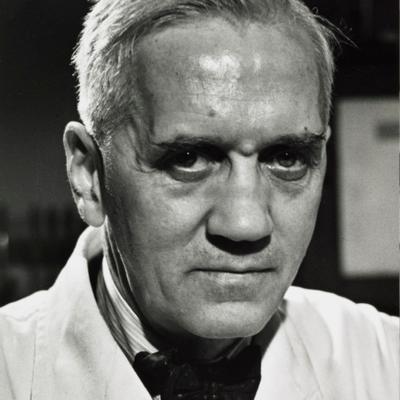
Before penicillin, infection was a constant concern in surgical procedures. With the arrival of the antibiotic, surgical medicine underwent a significant transformation. Post-operative infections, once fatal, became treatable, increasing the success rates of surgeries.
The use of antibiotics, such as penicillin, also allowed for the development of more advanced and safer surgical techniques. Surgeons were able to perform more complex procedures with the assurance that they had means to control infections, an advancement that saved countless lives over the decades.
How Alexander Fleming and the Accidental Discovery Changed Medicine Forever
The story of Alexander Fleming is a combination of serendipity and scientific brilliance that led to one of the most significant medical advancements in history. In 1928, while working at St. Mary’s Hospital in London, Fleming made a casual observation that would change the course of medicine forever. He noticed that a fungus called Penicillium notatum had contaminated one of his Petri dishes filled with Staphylococcus bacteria, and notably, the bacteria around the fungus were being destroyed. This unexpected discovery would lead to the development of penicillin, the world’s first antibiotic, which would save millions of lives and revolutionize the treatment of bacterial infections.
Fleming’s discovery was not just a stroke of luck; it was the culmination of years of research and exploration into the properties of bacteria and their interactions with various substances. His work laid the foundation for the field of antibiotics, which has since expanded to include a wide range of medications used to combat bacterial infections. The impact of penicillin on public health was profound, significantly reducing mortality rates from bacterial diseases and paving the way for modern medicine as we know it today.
Advantages of Penicillin’s Discovery in Modern Health
The discovery of penicillin by Alexander Fleming brought numerous advantages in modern health, fundamentally changing how we approach infections and diseases caused by bacteria. One of the most significant benefits of penicillin is its ability to effectively treat a wide variety of bacterial infections. Before the advent of antibiotics, many common infections could lead to severe complications or even death. With the introduction of penicillin, healthcare professionals gained a powerful tool to combat these infections, drastically reducing mortality rates and improving patient outcomes.
Another advantage of penicillin is its role in surgical procedures. The use of antibiotics, particularly penicillin, made surgeries much safer by reducing the risk of post-operative infections. Surgeons could now perform complex procedures with greater confidence, knowing they had effective means to prevent and treat infections that might arise during or after surgery. This contributed to advancements in surgical techniques and enabled more innovative, life-saving interventions.
Penicillin also played a crucial role in the treatment of war wounds. During World War II, the need for effective treatment of infected wounds became paramount. Penicillin was mass-produced and distributed to soldiers, significantly reducing the number of deaths caused by infected wounds. This not only saved countless lives on the battlefield but also highlighted the importance of antibiotics in emergency medicine and trauma care.
Additionally, the discovery of penicillin paved the way for the development of an entire class of antibiotics, which continued to evolve over the decades. This expansion of antibiotic therapy provided healthcare professionals with a diverse arsenal of medications to combat various bacterial strains, including those resistant to penicillin. Ongoing research and development in this field continue to enhance our ability to treat infections effectively, ensuring that modern health remains equipped to handle emerging threats.
Penicillin During World War II
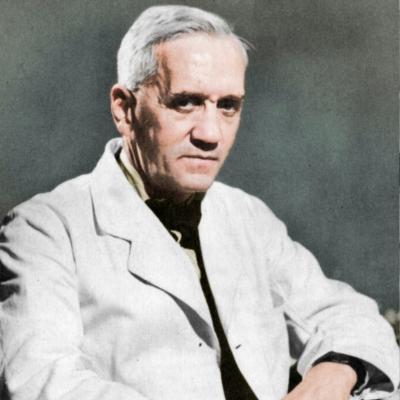
During World War II, penicillin became a crucial resource in the treatment of war wounds. Soldiers frequently suffered from infections in their wounds, and penicillin helped significantly reduce the deaths caused by these complications. Its mass production and distribution to the frontlines saved thousands of lives.
Moreover, the use of penicillin in the war exemplified the importance of antibiotics in emergency and trauma situations. The effectiveness of the drug in a real war scenario highlighted its value, solidifying its status as an indispensable tool in modern medicine.
The Fight Against Antibiotic Resistance
While penicillin revolutionized the treatment of infections, its success also led to an unexpected challenge: bacterial resistance. Over time, some strains of bacteria began to develop resistance to the antibiotic, bringing to light the need for more responsible usage and ongoing research for new treatments.
Antibiotic resistance is one of the greatest challenges in modern medicine and reflects the adaptation of bacteria to the drugs we use to fight them. Fleming’s discovery is therefore both a legacy and a reminder that the battle against infections must be constant and adaptable to new threats.
How the Accidental Discovery of Penicillin Revolutionized Treatment
Understanding the fundamentals of penicillin and its effects on bacterial infections: Penicillin works by inhibiting the synthesis of bacterial cell walls, leading to cell lysis and ultimately the death of the bacteria. This mechanism of action makes it particularly effective against gram-positive bacteria, which are responsible for many common infections. Penicillin’s ability to attack bacteria without harming human cells was a revolutionary advancement in medicine.
The role of Alexander Fleming in the development of antibiotics: Fleming’s meticulous observations and subsequent research laid the foundation for the understanding of antibiotics. His initial discovery of penicillin sparked the interest of other scientists, leading to further investigations and the eventual mass production of the antibiotic. Fleming’s work exemplifies the importance of curiosity and scientific inquiry in driving medical advancements.
The impact of penicillin on medicine and health innovation in the 20th century: The introduction of penicillin marked the beginning of the antibiotic era, transforming the treatment of infectious diseases. This led to the development of additional antibiotics and changed the landscape of medicine, allowing the treatment of conditions that were previously considered incurable. The success of penicillin inspired more research into other antimicrobial agents, resulting in a proliferation of effective treatments for bacterial infections.
Addressing antibiotic resistance in the context of Fleming’s discovery: Although penicillin revolutionized medicine, it also brought the challenge of antibiotic resistance. Over time, bacteria evolved mechanisms to evade the effects of antibiotics, leading to the emergence of resistant strains. This ongoing battle highlights the need for responsible use of antibiotics and continued research to develop new treatments, ensuring that Fleming’s legacy endures in the face of modern challenges.
Did You Enjoy Learning About Alexander Fleming and the Accidental Discovery That Saved Millions?
Learning about Alexander Fleming and his revolutionary discovery of penicillin offers a fascinating insight into the world of scientific exploration and the profound impact it can have on human health. The story of how a casual observation led to the development of one of the most important medical advancements in history is a testament to the power of curiosity and innovation. Fleming’s work not only saved countless lives but also opened new avenues for research and development in the field of antibiotics.
As we continue to navigate the complexities of modern health, understanding the significance of Fleming’s discovery remains crucial. It serves as a reminder of the importance of scientific investigation, the potential for accidental discoveries, and the ongoing need for innovation in the fight against infectious diseases. With each new advancement, we honor Fleming’s legacy and the millions of lives saved as a result of his work.
Frequently Asked Questions
Who was Alexander Fleming?
Alexander Fleming was a Scottish physician and bacteriologist. He is known for his work with bacteria and, most importantly, for the discovery of penicillin.
How was Fleming’s accidental discovery made?
Fleming noticed, by chance, that a fungus had killed bacteria on his Petri dishes. This observation led to the creation of penicillin, which changed medicine.
Why is penicillin important?
Penicillin is an antibiotic that treats bacterial infections. Thanks to Alexander Fleming and his accidental discovery, millions of lives have been saved.
What was the impact of Fleming’s discovery?
The discovery of Alexander Fleming and penicillin revolutionized medical treatments. Infections were no longer a death sentence for many people.
Did Fleming receive awards for his discovery?
Yes, he was awarded the Nobel Prize in Medicine in 1945. This was in recognition of the impact of his accidental discovery that saved millions.
